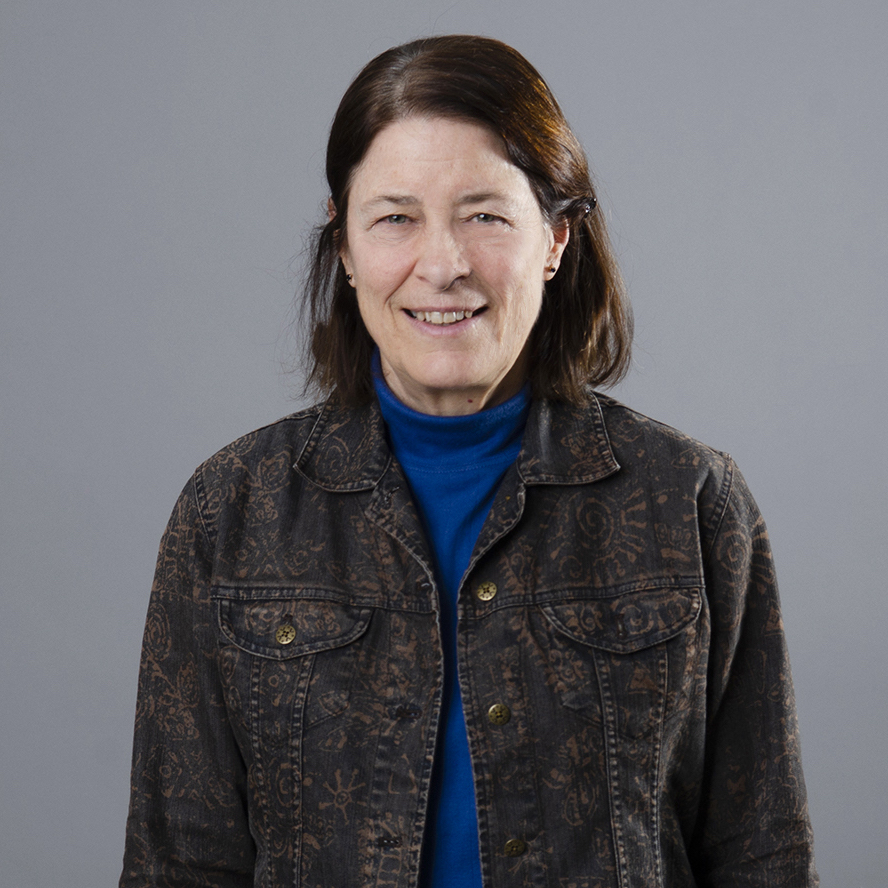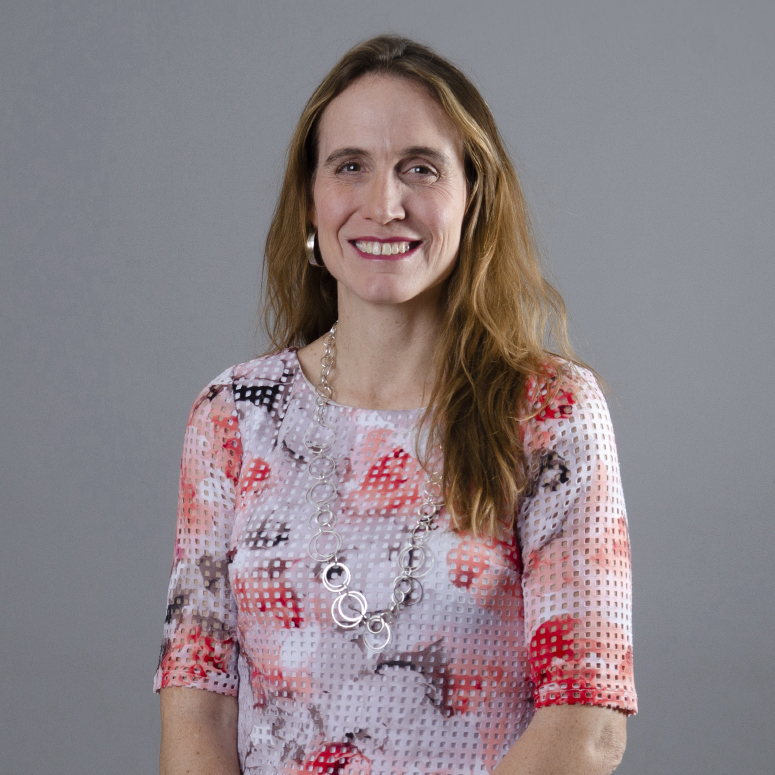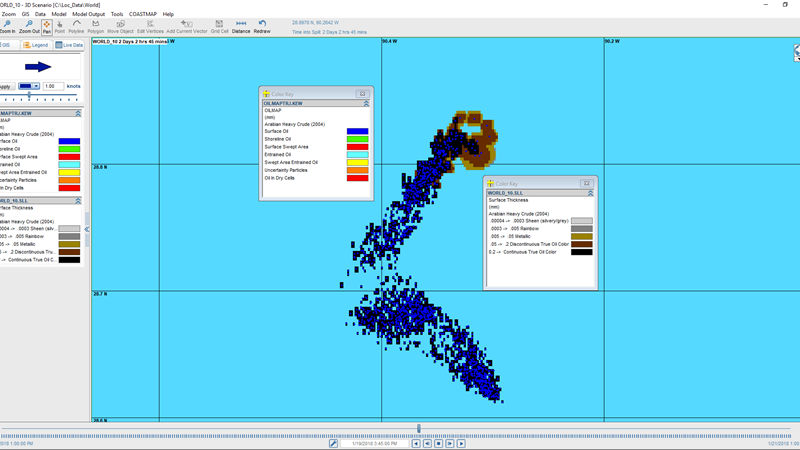RPS EXPERTS AT IOSC

Deborah French-MCCAY, Ph.D.
Director of Research and Model Development
Dr. Deborah French-McCay (formerly Dr. French) received her Ph.D. in Oceanography from the University of Rhode Island in 1984. In that same year, she joined Applied Science Associates (ASA), now RPS Ocean Science, a part of RPS Group. Presently, she is the Director of Research and Model Development at RPS. Dr. French McCay specializes in quantitative assessments and modeling of oil and chemical releases for response planning, impact, risk, and natural resource damage assessments (NRDA); evaluating transport and fates, exposure, and effects of pollutants on individual organisms, populations and aquatic ecosystems.

Matt horn, Ph.D.
Director of Science
Dr. Matt Horn is a Director at RPS in South Kingstown, RI where he manages a team of expert scientists, engineers, and technical staff. He is a senior scientist, specializing in unmitigated and response mitigated oil and chemical trajectory and fate modeling using proprietary RPS software that he helps to develop and maintain. With 10 years of experience at RPS, Dr. Horn has worked on Natural Resource Damage Assessments (NRDA), including the Deepwater Horizon oil spill, and has provided evidence and expert testimony for several regulatory hearings in Canada and the U.S. related to numerous projects focused on pipelines, offshore exploration and development, and rail. He earned a B.S. in Science of Earth Systems, with distinction in research, focusing on oceanography and climate dynamics from Cornell University in 2004. He received a Ph.D. in oceanography from the University of Rhode Island, Graduate School of Oceanography in 2011.

Eric Comerma, Ph.D.
Director of International Services
Dr. Eric Comerma specializes in pollutant transport modelling and metocean data analysis. He has 20 years of experience in numerical modelling and operational oceanography in support of Marine Emergency Response (e.g. marine counter-pollution, Search & Rescue operations). He leads the international market, providing modelling services in support of Environmental Impact Assessments and Contingency Planning for the Oil and Gas Industry. Eric oversees many of the international consultancy projects in Latin-America, Europe, Africa and Middle East. He is fluent in Spanish, Catalan, French, and English.

Gabrielle McGrath
Senior Scientist / Senior Project Manager
Gabrielle McGrath earned her Bachelor of Science degree in Biological and Physical Oceanography from the U.S. Coast Guard Academy and her Master of Science degree in Physical Oceanography from the University of Rhode Island Graduate School of Oceanography. She served for 26 years on Active Duty in the U.S. Coast Guard specializing in oil spill and hazardous material response, emergency management and the Incident Command System, detection and tracking of icebergs using numerical modeling, and leadership training and development. She retired and joined RPS Ocean Science in 2018 where she is a Senior Scientist and Senior Project Manager, leading response planning projects and international modeling studies. Ms. McGrath is also the RPS Ocean Science Staff Development Manager supporting employee training and career development and driving People-related strategic initiatives.
OILMAP
RPS OILMAP Trajectory & Fates Modeling System

SCHEDULE
Short Courses
Oil in the Aquatic Environment: Sources, Fate, Effects, Monitoring and Response Options
Tuesday, May 4th from 8:00 AM - 5:00 PM EST
Deborah French-McCay
This will include 9 modules describing key aspects related to the science behind evaluating fate and effects of oil spills in aquatic environments. Dr. French-McCay will lead module 9: “Oil Spill Modeling and Contingency Planning”.
Basic Oil Forecasting and Modeling
Thursday, May 6th from 1:00 PM - 5:00 PM EST
Deborah French-McCay and Matt Horn
We will introduce the fundamentals of oil spill transport, fate, and effects analyses using computer modeling.
Presentations
Improving Response Planning By Using Numerical Models to Test Geographic Response Plans
Monday, May 10th from 11:15 PM - 12:45 PM EST
Gabrielle McGrath
This will show how computer modeling can be used to successfully test Geographic Response Plans and Strategies from Area Contingency Plans in minutes from your office without the logistical challenges of response equipment field deployments.
Research Outcomes informing Planning, Preparedness, Response, and Restoration: Dispersants
Monday, May 10th from 11:15 AM - 12:45 PM EST
Deborah French-McCay
Quantified Exposures from Potential Deepwater Releases for Comparative Risk Assessment of Oil Spill Response Options Including Dispersant Use.
Development of the Inland Estimated Recovery System Potential (ERSP) Calculator
Monday, May 10th from 3:45 PM - 5:15 PM EST
Gabrielle McGrath
This presentation will discuss the need for and the conceptual design of the Inland ERSP Calculator and its use as a planning tool for oil spills in inland environments.
Oil Spill Modeling for the Enbridge Line 3 Replacement Program with Response for Planning, Preparedness, and Environmental Purposes
Tuesday, May 11th from 4:10 PM - 4:30 PM EST
Matt Horn
This talk will focus on the many different ways oil spill modeling was used for the Enbridge Line 3 Replacement Program to meet regulatory requirements and engage and satisfy many different stakeholder groups.
Using Oil Spill Modeling in Oil Spill Exercises and Drills
Tuesday, May 11th from 4:30 PM - 4:50 PM EST
Matt Horn
Comprehensive oil spill modeling is being used more regularly on the planning and preparedness front with results helping guide everything from table top exercises up to full scale exercises.
Research Outcomes informing Planning, Preparedness, Response, and Restoration: Fate and Impacts
Wednesday, May 12th from 1:45 PM – 3:15 PM EST
Co-Author Deborah French-McCay
A tool for comparing relative risks to ecological components associated with different oil spill response options.
Oil Spill Science: Modeling
Thursday, May 13th from 11:15 AM - 12:45 PM EST
Deborah French-McCay
Oil Spill Modeling Lessons Learned over Four Decades of Catastrophic Spills.
Incorporating Automatic Satellite Detection of Oil Spills with Numerical Fate and Trajectory Modelling
Friday, May 14th from 1:45 PM - 3:15 PM EST
Gabrielle McGrath
This will discuss the development of an algorithm to automatically detect oil spills from Synthetic Aperture Radar (SAR) satellite imagery and the ability to use the output from this algorithm to hindcast where the oil originated in order to find the Responsible Party and to forecast where the oil is moving to facilitate the response effort.
POSTERS
High Viscosity Land Based Oil Flow Model
Thursday, May 13th from 9:00 AM - 10:00 AM EST
Eric Comerma
Following an analogous lava model, RPS developed a model to simulate the downslope trajectory and fate of high viscosity oil spilled on land, considering changes of viscosity due to temperature.
OILMAP and ArcGIS provide qualitative validation of USCG Sector Geographic Response Strategies
Friday, May 14th from 9:00 AM - 10:00 AM EST
Gabrielle McGrath
RPS initiated a project with the Coast Guard Academy, the Fifth Coast Guard District, and Coast Guard Sector Delaware Bay to use RPS’ state-of-the-art modeling software, OILMAP, to validate Geographic Response Strategies (GRS) from Area Contingency Plans. OILMAP proved to be a highly effective tool to test these strategies during multiple seasons and environmental conditions.


